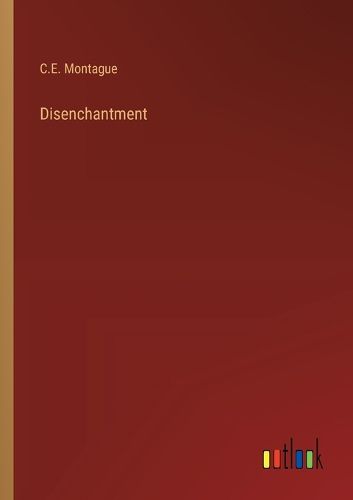Readings Newsletter
Become a Readings Member to make your shopping experience even easier.
Sign in or sign up for free!
You’re not far away from qualifying for FREE standard shipping within Australia
You’ve qualified for FREE standard shipping within Australia
The cart is loading…






Montague was against the First World War prior to its commencement, but once it started he believed that it was right to support it in the hope of a swift resolution In 1914, Montague was 47, which was well over the age for enlistment. But in order to enlist, he dyed his white hair black to enable him to fool the Army into accepting him. H. W. Nevinson would later write that "Montague is the only man I know whose white hair in a single night turned dark through courage." He began as a grenadier-sergeant, and rose to lieutenant and then captain of intelligence in 1915. Later in the war, he became an armed escort for VIPs visiting the battlefield. He escorted such personalities as H.G. Wells and Bernard Shaw. After the end of World War I he wrote in a strong anti-war vein. He wrote that "War hath no fury like a non-combatant." Disenchantment (1922), a collection of newspaper articles about the war, [1] was one of the first prose works to strongly criticise the way the war was fought, and is regarded by some as a pivotal text in the development of literature about the First World War. Disenchantment criticised the British Press' coverage of the war and the conduct of the British generals. Montague accused the latter of being influenced by the "public school ethos" which he condemned as a "gallant robust contempt for "swats" and for all who invented new means to new ends and who trained and used their brains with a will"
$9.00 standard shipping within Australia
FREE standard shipping within Australia for orders over $100.00
Express & International shipping calculated at checkout
Montague was against the First World War prior to its commencement, but once it started he believed that it was right to support it in the hope of a swift resolution In 1914, Montague was 47, which was well over the age for enlistment. But in order to enlist, he dyed his white hair black to enable him to fool the Army into accepting him. H. W. Nevinson would later write that "Montague is the only man I know whose white hair in a single night turned dark through courage." He began as a grenadier-sergeant, and rose to lieutenant and then captain of intelligence in 1915. Later in the war, he became an armed escort for VIPs visiting the battlefield. He escorted such personalities as H.G. Wells and Bernard Shaw. After the end of World War I he wrote in a strong anti-war vein. He wrote that "War hath no fury like a non-combatant." Disenchantment (1922), a collection of newspaper articles about the war, [1] was one of the first prose works to strongly criticise the way the war was fought, and is regarded by some as a pivotal text in the development of literature about the First World War. Disenchantment criticised the British Press' coverage of the war and the conduct of the British generals. Montague accused the latter of being influenced by the "public school ethos" which he condemned as a "gallant robust contempt for "swats" and for all who invented new means to new ends and who trained and used their brains with a will"